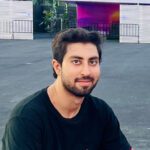Discrimination and oppression existed in all forms; races were segregated, social classes were divided and extreme poverty was the norm for the majority, this was life in the Apartheid period in South Africa.
This unrest sparked an uprising.
Ms Ela Gandhi, granddaughter of peace activist Mohandas ‘Mahatma’ Gandhi, was part of this uprising; she worked alongside Nelson Mandela in the anti-Apartheid movement and continues her activism work today.
Ms Gandhi was in Perth to speak at Curtin University for a human rights day event to celebrate the tenth anniversary for the Curtin Centre for Human Rights Education.
The event included national and international speakers who spoke about human rights issues prevalent in the world today.
“People were imprisoned and some of them were even killed by the repressive system.”
Ms Gandhi spoke about her theory of active participation by the people in a democracy.
“What we are seeing is that most people do not take an interest in social issues unless it personally involves them,” Ms Gandhi said.
“An educated, informed and interested population can contribute meaningfully to the debate.”
In 1975 Ms Gandhi was placed under house arrest for five years and banned from activism for nine years.
She continued her activism work underground, despite having her son killed and friends imprisoned for being politically involved.
She spoke about her experiences as an activist and expressed fond memories of working alongside colleague and friend the late Mr Mandela.
“People were imprisoned and some of them were even killed by the repressive system,” Ms Gandhi said.
“It was hard to live in that kind of a system, but it was challenging for us to continue the struggle.”
Ms Gandhi’s relationship with Mr Mandela started when she went to visit him in prison with the United Demographic Front of Delegations before his release in 1990.
Ms Gandhi said when she went to see Mr Mandela she was surprised at how optimistic he was despite being imprisoned.
“He told us that love was the key for a democratic government, and it’s only when you learn to love, that you can bring about this change,” she said.
“We were very influenced by his teachings, he was our hero,
“My grandfather was the same, my son was killed during Apartheid, and I have to think if I am confronted by the perpetrator, I would forgive and extend a hand of friendship so that that person can transform,” she said.
Ms Gandhi said she was delighted with the work that had been done at the Curtin Centre for Human Rights Education.
“One of the reasons why I feel the model of the centre works is because it is situated in humanities,” she said.
“It is the ideal model and should be implemented by other universities.”
The event finalised with the audience asking Ms Gandhi questions.
A young girl raised her hand and asked “What is it like being Gandhi’s granddaughter?”
Ms Gandhi laughed and replied, “I feel very privileged to have been born in this family.
“I am just a normal person and I started small, it all depends on the passion that you have.”



